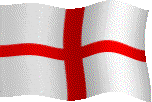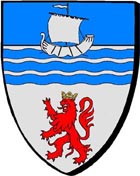
England
Bro Saoz
Sidford
Moridunum

Devon
Bro Domnonea
Encyclopédie Marikavel-Jean-Claude-EVEN/Encyclopaedia/Enciclopedia/Enzyklopädie/egkuklopaideia
| Noms de lieux | Noms de personnes |

England Bro Saoz |
Sidford Moridunum |

Devon Bro Domnonea |
| page ouverte le 03.03.2008 | forum de discussion
* forum du site Marikavel : Academia Celtica |
dernière mise à jour 11/01/2010 13:20:02 |
![]()
|
Définition : |
|
![]()
|
Extrait de : Map of Roman Britain; Ordnance Survey |
![]()
|
Histoire : |
![]()
|
Étymologie : * Rivet & Smith, p. 421-422 : SOURCES : - AI 4837 (Iter XII, by error of the copyist) : MURIDUNO; 4861, (Iter XV) : MORIDUNO Ravenna 1062 -( = R&C 15) : MELAMONI; 1064 (= R&C 19) : MILIDUNUM; 1069 (= R&C 23) : MORIDUNO; 10613 (= R&C 30) : MORIONIO - TP : RIDUMO In TP, it is evident that initial Mo- was written on the first segment of the map, and that when this was lost only the remaining portion on the second sheet could be written when the extant copy was made; compare Madus under Noviomagus(2). In Ravenna, we have the only case in which a name is not merely duplicated, as often,'but given four times. Although R&C seem unaware of this, and provide separate etymologies for two forms in addition to Moridunum, the names are inseparable and their unification is readily justified on the grounds of miscopying. However, there must be reasons for this extraordinary repetition. It seems that the Cosmographer had two map sources for Britain to Hadrian's Wall, and a third additional source for south-west England, as argued in Chapter V. This would explain matters to some extent. Perhaps a form of the present name with -l- (for -r-) figured as such in at least one source. Beyond this, however, it may be pertinent to note that in the surviving TP, Moridunum is the only south-western place named beside Isca Dumnoniorum; although we know that the Cosmographer did not use TP as such, he may have had a source related in some way to it, and his eye may have returned mistakenly to this nearly isolated name (Iterum iuxta super scriptam civitatem Scadoniorum est civitas quae dictur.. . ). DERIVATION. For British *mori- `sea', see MORICAMBE; for -dunum, see BRANODUNUM. The sense is then `sea-fort'. Jackson in Britannia, I (1970), 77, examines other possibilities for the first element, but in view of parallels elsewhere - in addition to Moridunum(2) - these hardly need to be followed up. Holder II. 629 notes an assumed *Moridunum (earlier forms are lacking) > Ortenau (early Mortenau) in Baden (Upper Rhine, Germany), and another > Murten (= Morat in French) on the Murtener See in Switzerland (Freiburg). This semantic extension of *mori- from 'sea' to extensive inland waters may be significant for another British name that probably contains it, Vindomora. One may compare German See (masc.) used of inland waters, and Meer used for large lakes (e.g. Constance, Balaton) and the cognate English mere. There was a Moridon in Spain, Ravenna 79,53, listed among places as iuxta oceanum. If this is for *Moridon(um), as is likely, it belongs with the present name. AI's form Muri- in the miscopied Iter XII shows a scribal assimilation to Latin murus `wall'; there is an assimilation to another Latin word in one of the forms of Moridunum(2). IDENTIFICATION : Possibly, as argued on p. 180, an unidentified Roman settlement at Sidford, Devon (ST 1389). The possibility that *mori might refer to inland waters does not assist alternative identifications, since there are no lakes in the area in question. |
![]()
|
Formes bretonnes anciennes : |
![]()
|
Sources : * Eilert EKWALL : The Concise Oxford Dictionary of English Place-names. Clarendon Press. Oxford. First edition 1936; Fourth edition 1960, Reprint 1980. * A.L.F RIVET & Colin SMITH : The Place-names of Roman Britain. Batsford Ltd. 1979. Édition 1982. |
![]()
|
Liens électroniques des sites Internet traitant de Sidford / Moridunum : * lien communal officiel : * forum du site Marikavel : Academia Celtica hast buan, ma mignonig go fast, my little friend |
![]()